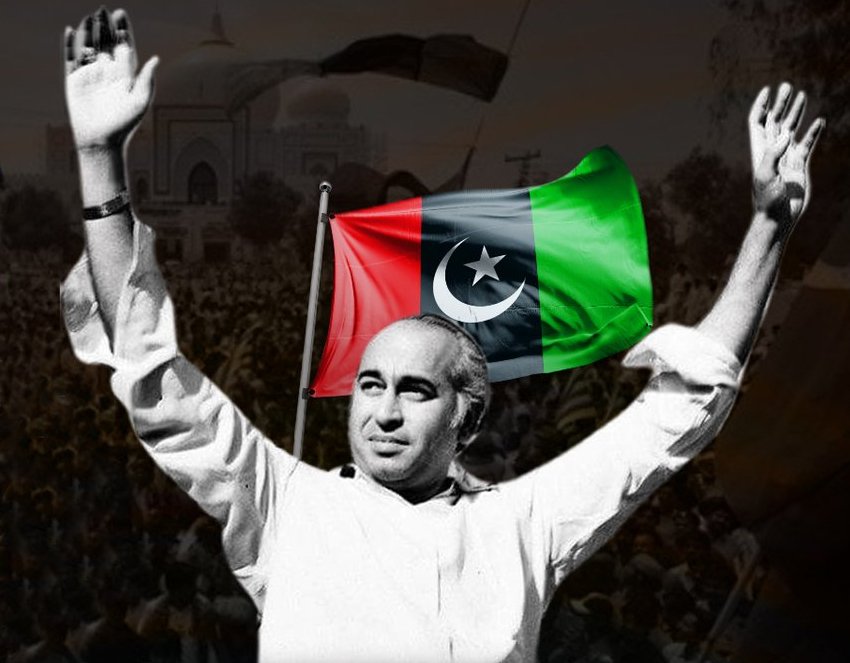Zulfikar Ali Bhutto was not given a fair trial. The Supreme Court of Pakistan has issued a significant verdict regarding the trial, sentencing, and subsequent execution of former Prime Minister Zulfikar Ali Bhutto, asserting that he was denied a fair trial.
This landmark decision comes after a rigorous examination by a nine-member bench, headed by Chief Justice of Pakistan Qazi Faez Isa, responding to a presidential reference filed in 2011 seeking a review of Bhutto’s case.
The bench also comprises Justice Sardar Tariq Masood, Justice Syed Mansoor Ali Shah, Justice Yahya Afridi, Justice Amin-ud-Din Khan, Justice Jamal Khan Mandokhel, Justice Muhammad Ali Mazhar, Justice Syed Hasan Azhar Rizvi and Justice Musarrat Hilali.
Also read: Supreme Court panel to decide on live telecast of Zulfiqar Ali Bhutto reference
Chief Justice Isa, while delivering the succinct verdict, underscored the pivotal absence of due process in Bhutto’s trial, citing it as a deviation from constitutional norms.
“Zulfikar Ali Bhutto did not get a fair trial and it was not in accordance with the Constitutional requirement of due process,” said CJP Isa while announcing the short order.
Bhutto met his demise on April 4, 1979, following a Supreme Court ruling in a murder case, an event fiercely contested by his political party, which labeled it a “judicial murder.”
The ongoing proceedings stemmed from an earlier initiative led by former Chief Justice Iftikhar Muhammad Chaudhry and were rekindled on December 12 under the Supreme Court (Practice and Procedure) Act, 2023.
This resurgence followed a decision by a select three-member committee comprising CJP Isa, Justice Sardar Tariq Masood, and Justice Ijazul Ahsan.
As Zulfikar Ali Bhutto was not given a fair trial, according to Supreme Court, the verdict not only revisits a contentious chapter in Pakistan’s political history but also signals a renewed commitment by the judiciary to uphold principles of fairness and justice.
The order
At the outset of the hearing, CJP Isa shared that the bench had come to a unanimous decision.
Reading the short order, the chief justice said that the judges are bound to “do right to all manner of people according to law without fear of favour, affection or ill will”.
“We must, therefore, be willing to confront our past missteps and inffalibities with humility in the spirit of self-accountability and as a testament to our commitment to ensure that justice shall be serving with unwavering, integrity and fidelity to the law,” said the CJP.
The CJP said that the “reference files that the president of Pakistan has provided us an opportunity to reflect upon the proceedings of the trial, conviction and death sentence of Bhutto under the regime of military dictator Gen Zia ul Haq.”
He also read the five questions raised in the reference.
The CJP read the first question i.e. “Whether the decision of the Lahore High Court (LHC) as well the Supreme Court of Pakistan in the murder trial against Shaheed Zulfiqar Ali Bhutto meets the requirements of the fundamental rights as guaranteed in Article 4, sub-articles 1 and 2(a), Articles 8, 9, 10-A due process and Article 14 and 25 of the Constitution.”
CJP Isa then read the court’s opinion, saying “The proceedings of the trial by the LHC and of the appeal by the SC do not meet the requirements of the fundamental rights to a fair trial in due process enshrined in Articles 4 and 9 of the Constitution and later guaranteed as the separate and independent fundamental right under Article 10-A of the Constitution.”
“At the time, the relevant Article 10-A wasn’t part of the Constitution but the principles enunciated therein have always been part of our jurisprudence.”
“The second part of the opinion of this question is that the question and the Constitution and the law do not provide a mechanism to set aside a judgment whereby Bhutto was convicted and sentenced. The said judgment attain finality after the dismissal of the review petition by this court,” remarked the chief justice.
He then read the second question i.e. “Will the conviction leading to the execution of Bhutto could be termed as the decision of the SC binding on all courts being based upon or enunciating the principle of law in terms of Article 189 of the Constitution?”
Reading out the court’s opinion, CJP Isa said: “Reference questions do not specify the questions of principle of law enunciated by this court in the ZAB case regarding which our opinion is sought. Therefore it cannot be answered […].”
